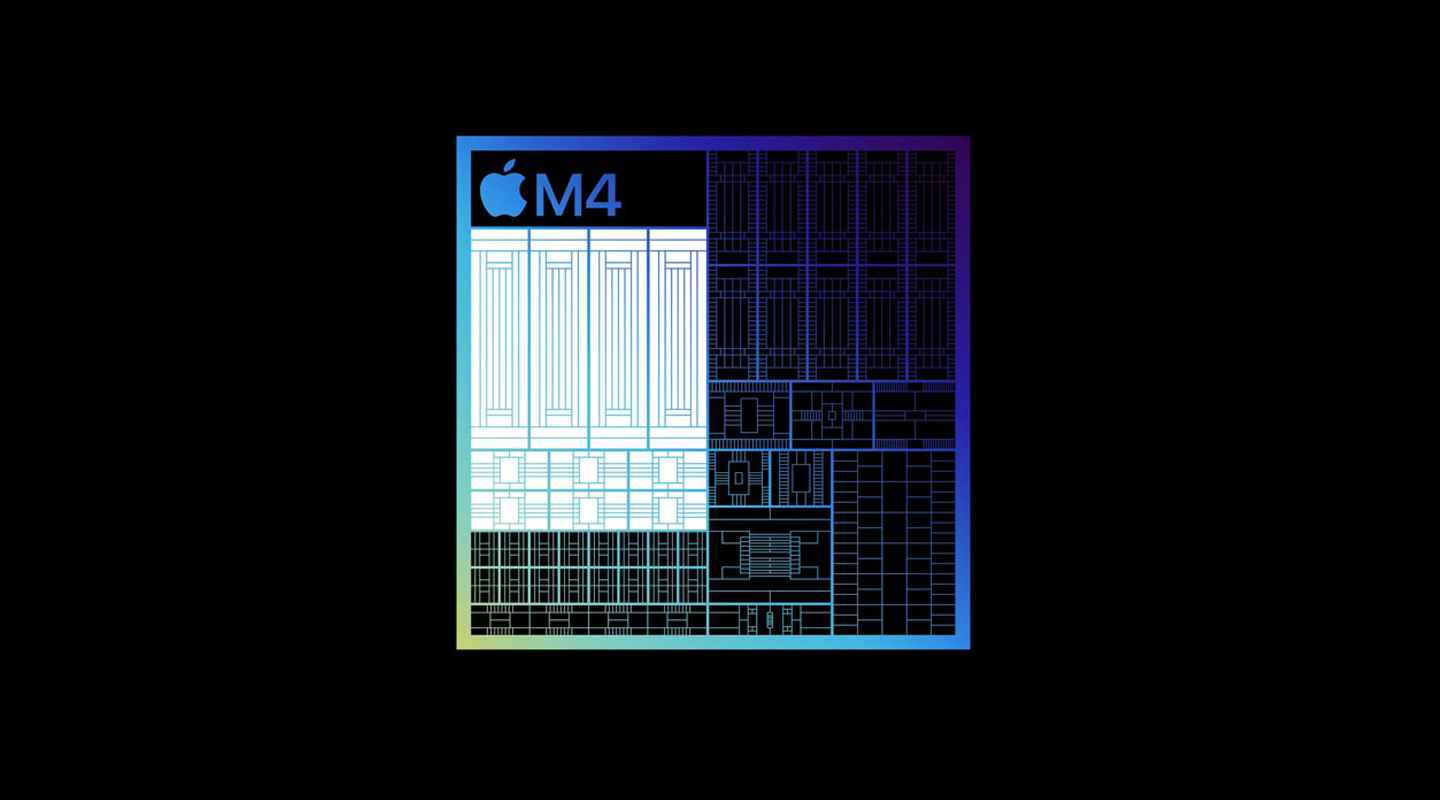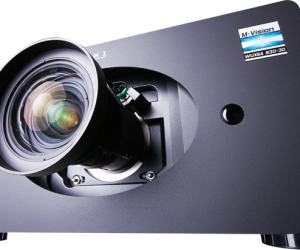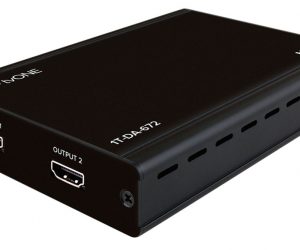
The Apple M4 is Here
The M4 is the latest chip for the new iPad Pro.
Apple has announced M4, the latest chip for the all-new iPad Pro. Built using second-generation 3-nanometer technology, M4 is a system on a chip (SoC) that advances the power efficiency of Apple silicon and enables the incredibly thin design of iPad Pro. It also features an entirely new display engine to drive the precision, colour, and brightness of the breakthrough Ultra Retina XDR display on iPad Pro. A new CPU has up to 10 cores, while the new 10-core GPU builds on the next-generation GPU architecture introduced in M3, and brings Dynamic Caching, hardware-accelerated ray tracing, and hardware-accelerated mesh shading to iPad for the first time. M4 has Apple’s fastest Neural Engine ever, capable of up to 38 trillion operations per second, which is faster than the neural processing unit of any AI PC today. Combined with faster memory bandwidth, along with next-generation machine learning (ML) accelerators in the CPU, and a high-performance GPU, M4 makes the new iPad Pro an outrageously powerful device for artificial intelligence.
“The new iPad Pro with M4 is a great example of how building best-in-class custom silicon enables breakthrough products,” said Johny Srouji, Apple’s senior vice president of Hardware Technologies. “The power-efficient performance of M4, along with its new display engine, makes the thin design and game-changing display of iPad Pro possible, while fundamental improvements to the CPU, GPU, Neural Engine, and memory system make M4 extremely well suited for the latest applications leveraging AI. Altogether, this new chip makes iPad Pro the most powerful device of its kind.”
New Technologies Enabling the New iPad Pro
Delivering a giant leap in performance over the previous iPad Pro with M2, M4 consists of 28 billion transistors built using a second-generation 3-nanometer technology that further advances the power efficiency of Apple silicon. M4 also features an entirely new display engine designed with pioneering technologies, enabling the stunning precision, colour accuracy, and brightness uniformity of the Ultra Retina XDR display, a state-of-the-art display created by combining the light of two OLED panels.
New 10-core CPU
M4 has a new up-to-10-core CPU consisting of up to four performance cores and now six efficiency cores. The next-generation cores feature improved branch prediction, with wider decode and execution engines for the performance cores, and a deeper execution engine for the efficiency cores. And both types of cores also feature enhanced, next-generation ML accelerators.
M4 delivers up to 1.5x faster CPU performance over the powerful M2 in the previous iPad Pro.1 Whether working with complex orchestral music files in Logic Pro or adding highly demanding effects to 4K video in LumaFusion, M4 boosts performance across pro workflows.
GPU Brings New Capabilities to iPad Pro
The new 10-core GPU of M4 builds upon the next-generation graphics architecture of the M3 family of chips. It features Dynamic Caching, an Apple innovation that allocates local memory dynamically in hardware and in real time to dramatically increase the average utilisation of the GPU. This significantly increases performance for the most demanding pro apps and games.
Hardware-accelerated ray tracing comes to iPad for the first time, and enables even more realistic shadows and reflections in games and other graphically rich experiences. Hardware-accelerated mesh shading is also built into the GPU, and delivers greater capability and efficiency in geometry processing, enabling more visually complex scenes in games and graphics-intensive apps. Pro rendering performance in apps like Octane gets a huge boost with M4 and is now up to four times faster than on M2.1 With these improvements to the CPU and GPU, M4 maintains Apple silicon’s industry-leading performance per watt. M4 can deliver the same performance as M2 using just half the power. And compared with the latest PC chip in a thin and light laptop, M4 can deliver the same performance using just a fourth of the power.2
The Most Powerful Neural Engine Ever
M4 has a blazing-fast Neural Engine — an IP block in the chip dedicated to the acceleration of AI workloads. This is Apple’s most powerful Neural Engine ever, capable of an astounding 38 trillion operations per second — a breathtaking 60x faster than the first Neural Engine in A11 Bionic. Together with next-generation ML accelerators in the CPU, the high-performance GPU, and higher-bandwidth unified memory, the Neural Engine makes M4 an outrageously powerful chip for AI. And with AI features in iPadOS like Live Captions for real-time audio captions, and Visual Look Up, which identifies objects in video and photos, the new iPad Pro allows users to accomplish amazing AI tasks quickly and on device.
iPad Pro with M4 can easily isolate a subject from its background throughout a 4K video in Final Cut Pro with just a tap, and can automatically create musical notation in real time in StaffPad by simply listening to someone play the piano. And inference workloads can be done efficiently and privately while minimising the impact on app memory, app responsiveness, and battery life. The Neural Engine in M4 is Apple’s most capable yet and is more powerful than any neural processing unit in any AI PC today.
Advanced Media Engine for Smooth, Efficient Streaming
The Media Engine of M4 is the most advanced to come to iPad. In addition to supporting the most popular video codecs, like H.264, HEVC, and ProRes, it brings hardware acceleration for AV1 to iPad for the first time. This provides more power-efficient playback of high-resolution video experiences from streaming services.
Better for the Environment
The power-efficient performance of M4 helps the all-new iPad Pro meet Apple’s high standards for energy efficiency and deliver all-day battery life. This results in less time needing to be plugged in and less energy consumed over its lifetime.
Today, Apple is carbon neutral for global corporate operations, and by 2030, plans to be carbon neutral across the entire manufacturing supply chain and life cycle of every product.
Website: www.apple.com















RESPONSES